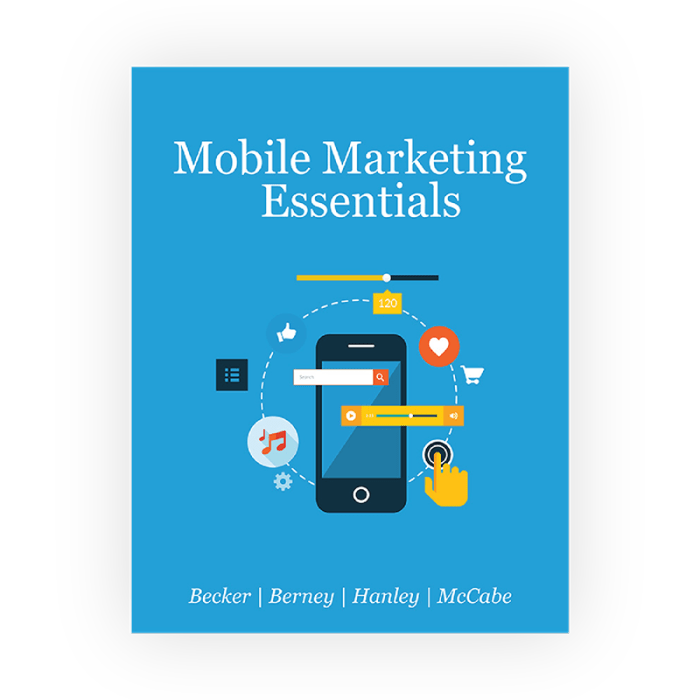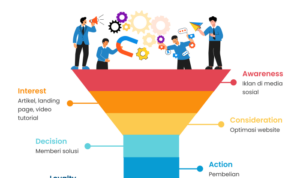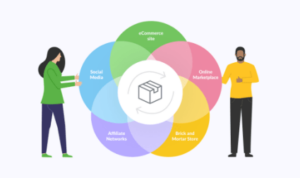Mobile Marketing Essentials sets the stage for dominating the digital world with cutting-edge tactics and game-changing insights. Get ready for a wild ride through the realm of mobile marketing!
From the importance of mobile marketing to leveraging social media and mobile apps, this guide covers it all. Strap in and let’s dive into the essentials of mobile marketing.
Understanding Mobile Marketing Essentials

In today’s digital landscape, mobile marketing has become essential for businesses looking to reach their target audiences effectively. With the increasing use of smartphones and mobile devices, it is crucial for companies to adapt their marketing strategies to engage with consumers on these platforms.Mobile marketing allows businesses to connect with customers in real-time, deliver personalized content, and create interactive experiences.
By leveraging mobile channels such as SMS, mobile apps, social media, and mobile websites, companies can target specific demographics and drive conversions.
Importance of Mobile Marketing
- Reach a Wider Audience: Mobile marketing enables businesses to reach a larger audience, including younger demographics who primarily use mobile devices.
- Instant Connectivity: With mobile marketing, companies can instantly connect with customers through push notifications, SMS, and social media.
- Personalized Campaigns: By collecting data on consumer behavior, businesses can create personalized campaigns that resonate with their target audience.
Successful Mobile Marketing Campaigns
- Starbucks: The Starbucks mobile app allows customers to order ahead, earn rewards, and pay with their smartphones, enhancing the overall customer experience.
- Pokémon GO: The augmented reality game Pokémon GO utilized mobile technology to create an immersive gaming experience that drove millions of downloads.
- Coca-Cola: Coca-Cola’s “Share a Coke” campaign encouraged customers to personalize their bottles with names, generating social media buzz and increasing brand engagement.
Key Differences Between Traditional Marketing and Mobile Marketing Strategies
- Accessibility: Mobile marketing allows businesses to reach customers anytime, anywhere, unlike traditional marketing methods that are limited by time and location.
- Interactivity: Mobile marketing enables two-way communication between businesses and customers, fostering engagement and building relationships.
- Personalization: Mobile marketing allows for personalized messages based on customer data, creating a more tailored and relevant experience for consumers.
Mobile Optimization Strategies

When it comes to mobile marketing, optimizing your strategies for mobile devices is crucial for success in today’s digital landscape. This involves ensuring that your website is mobile-friendly, implementing responsive design, focusing on mobile , and optimizing email marketing for mobile users.
Importance of Mobile-Friendly Websites and Responsive Design
Having a mobile-friendly website means that your site is easily accessible and functional on mobile devices, providing a seamless user experience. Responsive design ensures that your website adapts to different screen sizes and resolutions, enhancing user engagement and satisfaction.
Role of Mobile
- Implementing mobile practices helps improve your visibility on search engines, making it easier for potential customers to find your business online.
- Optimizing for mobile search involves using relevant s, creating quality content, improving page load speed, and ensuring a smooth user experience.
- Mobile is essential for ranking well in mobile search results and reaching your target audience effectively.
Tips for Optimizing Email Marketing for Mobile Devices
- Use responsive email templates that adjust to different screen sizes, ensuring that your emails are easy to read and navigate on mobile devices.
- Keep your subject lines short and engaging to capture the attention of mobile users who tend to skim through their emails quickly.
- Include a clear call-to-action (CTA) that is easily clickable on a mobile device, directing users to your website or landing page for further engagement.
- Test your email campaigns on various mobile devices and email clients to ensure compatibility and optimal performance across different platforms.
Leveraging Social Media for Mobile Marketing
When it comes to mobile marketing, leveraging social media platforms is crucial for reaching a wider audience and engaging with potential customers on the go.
Popular Social Media Platforms for Mobile Marketing, Mobile Marketing Essentials
- Facebook: With billions of active users, Facebook offers a wide reach for mobile marketing campaigns. Utilize features like Facebook Ads to target specific demographics.
- Instagram: Known for its visually appealing content, Instagram is perfect for showcasing products and services through images and videos. Use Instagram Stories for real-time engagement.
- Twitter: A platform for quick updates and conversations, Twitter is great for engaging with followers in real-time. Use hashtags to increase visibility.
- LinkedIn: Ideal for B2B marketing, LinkedIn allows you to connect with professionals and share industry-related content to establish thought leadership.
Creating Engaging Content for Mobile Users
- Keep it concise: Mobile users have limited attention spans, so make sure your content is clear and to the point.
- Use visuals: Incorporate eye-catching images and videos to capture the interest of mobile users scrolling through their feeds.
- Optimize for mobile: Ensure your content is mobile-responsive and loads quickly on different devices to provide a seamless user experience.
Best Practices for Running Mobile Ad Campaigns on Social Media
- Set clear objectives: Define your goals for the ad campaign, whether it’s increasing brand awareness, driving website traffic, or generating leads.
- Target the right audience: Use social media targeting options to reach users based on demographics, interests, and behaviors relevant to your business.
- Monitor and optimize: Track the performance of your ad campaigns regularly and make adjustments to optimize for better results.
Utilizing Mobile Apps for Marketing: Mobile Marketing Essentials
Mobile apps have become a powerful tool for businesses to reach their target audience and engage with customers on a more personal level. Developing a mobile app for marketing purposes can bring numerous benefits to a company looking to enhance its mobile marketing strategy.
Benefits of Developing a Mobile App for Marketing
- Increased brand visibility and awareness among users who download and use the app regularly.
- Direct communication channel with customers through push notifications, in-app messages, and personalized content.
- Enhanced customer loyalty and retention by offering exclusive deals, rewards, and a seamless shopping experience.
- Ability to gather valuable data and insights about user behavior, preferences, and interactions with the app.
Examples of Successful Mobile App Marketing Strategies
- Starbucks: The Starbucks mobile app allows customers to order ahead, pay with their phones, and earn rewards for their loyalty. This personalized experience has led to increased customer engagement and sales.
- Sephora: Sephora’s mobile app offers virtual try-on features, product recommendations, and exclusive offers, creating a seamless shopping experience that drives customer satisfaction and retention.
- Uber: Uber’s mobile app simplifies the process of booking a ride, tracking the driver’s location, and making secure payments. This convenience has made Uber a go-to choice for transportation services.
Increasing User Engagement through Mobile Apps
- Personalize the user experience with tailored content, recommendations, and notifications based on user preferences and behavior.
- Implement gamification elements such as rewards, badges, and challenges to encourage user participation and interaction within the app.
- Enable social sharing features to allow users to share their experiences, purchases, or achievements with their friends and followers, expanding the app’s reach and engagement.
- Collect feedback and ratings from users to continuously improve the app’s functionality, usability, and overall user experience.





